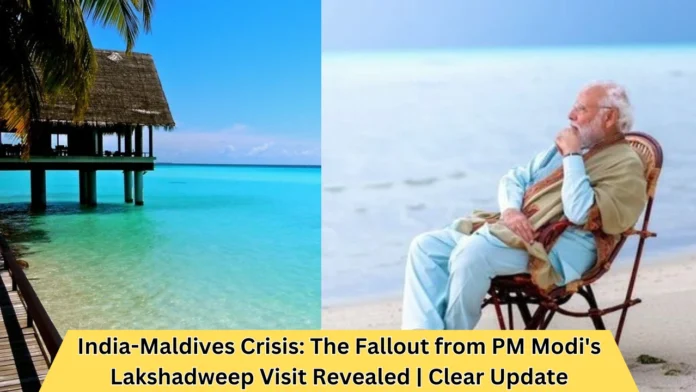Introduction
In a recent diplomatic flare-up, India expressed profound concern over derogatory remarks made by Mariyam Shiuna, Maldives Deputy Minister of Youth Empowerment, against Prime Minister Narendra Modi. The incident has ignited tensions between the two nations, leading to a stern response from India and distancing by the Maldives government from the controversial statements.
Background: The Spark of Controversy
1. The Lakshadweep Visit Fallout
A massive row erupted between India and Maldives following PM Modi’s visit to the Union Territory of Lakshadweep. Shiuna, using derogatory terms like ‘clown’ and ‘puppet,’ unleashed a barrage of criticism, sparking outrage in India. The inflammatory language quickly escalated the situation, leading to an unprecedented diplomatic crisis.
Read Also: सुकन्या समृद्धि योजना अपडेट: सरकार ने नए साल से पहले ब्याज दरें बढ़ाईं। Clear Update
2. Outcry in India
The derogatory remarks unleashed a wave of outrage in India, with citizens calling for a boycott of travel to Maldives. The sentiment was echoed by prominent figures, further straining the bilateral relationship.
Read Also: Dominant Performance by Rinku Singh Propels Uttar Pradesh in Ranji Trophy Clash
3. Former President’s Stand
Former Maldives President Mohamed Nasheed condemned Shiuna’s remarks and reaffirmed India’s significance as a key ally for the security and prosperity of the archipelago nation. Nasheed’s public disapproval highlighted the severity of the situation.
Read Also: AR Rahman’s birthday and his journey in the world of music. Clear Update
Maldives’ Response and Diplomatic Fallout
1. Government’s Position
The Maldives government, led by President Mohammad Muizzu, distanced itself from Shiuna’s comments, emphasizing the importance of exercising freedom of expression in a responsible manner. The government pledged action against those making derogatory remarks to preserve the close relationships with international partners, particularly India.
Read Also: Tiger 3 Streaming on Amazon Prime
2. Diplomatic Channels at Play
India, through diplomatic channels, raised concerns over the derogatory remarks, underscoring the significance of maintaining respectful discourse between nations. The diplomatic engagement aims to communicate India’s position on the matter and seek assurances from Maldives officials.
Political Dynamics: Muizzu’s Anti-India Stance
1. Election Campaign Tensions
The strained relations between India and Maldives find roots in Muizzu’s election campaign, where he took an anti-India stance. This ideological shift has contributed to escalating tensions between the two nations.
Read Also: HP ENVY x360 Convert 13-ay1059AU Laptop AMD Ryzen 5 5600U | DRT
2. Aligning with the Arab World
Muizzu’s government aligns itself closely with the Arab world, as evidenced by his first international trip to Turkey – a nation known for its anti-India views. This shift in alignment adds complexity to the diplomatic landscape between India and Maldives.
Read Also: Top 5 Best HP Laptops in 2023 | Digital RudraTech
Domestic and International Reactions
1. Maldivian Political Circles
Mariyam Shiuna’s derogatory remarks faced condemnation within the domestic political circles of Maldives. Former President Ibrahim Mohamed Solih denounced the “hateful” language, emphasizing the need to preserve the age-old friendship between India and Maldives.
Conclusion
The India-Maldives diplomatic row underscores the fragility of international relations and the impact of inflammatory language on bilateral ties. As both nations navigate through this crisis, the incident highlights the importance of diplomatic finesse and responsible expression to maintain amicable relationships on the global stage.





[…] Read Also: India-Maldives Crisis: The Fallout from PM Modi’s Lakshadweep Visit Revealed | Clear Update […]
[…] Read Also: India-Maldives Crisis: The Fallout from PM Modi’s Lakshadweep Visit Revealed | Clear Update […]
[…] Read Also: India-Maldives Crisis: The Fallout from PM Modi’s Lakshadweep Visit Revealed | Clear Update […]
[…] Read Also: India-Maldives Crisis: The Fallout from PM Modi’s Lakshadweep Visit Revealed | Clear Update […]